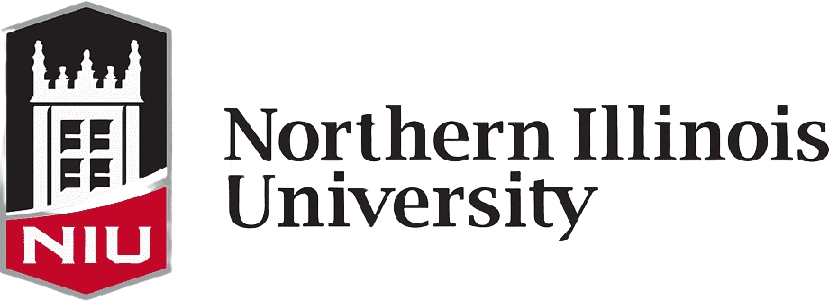graduate program
Master of business administration (MBA)

EARN YOUR MBA IN JUST ONE YEAR, FROM A PRESTIGIOUS, ACCREDITED USA UNIVERSITY!
THE BENEFITS OF THIS GRADUATE DEGREE
Join the accelerated MBA program offered by Northern Illinois University (NIU), USA, in collaboration with the Academy of Leadership Sciences Switzerland (ALSS) in Zurich. This program is globally recognized and designed to propel your career forward in the competitive business world.
For more than 50 years, NIU’s world-class MBA program has launched countless new career opportunities for our graduates. Now it’s your turn. Our program will help you think creatively, manage complex issues, make strategic decisions and be a dynamic leader. Get the most in-demand skills and advance your career through one of the best value MBA programs.
INFORMATION AT A GLANCE
Duration: One year
- Location: Six online courses and four face-to-face courses in Zurich, Switzerland
- Start Date: March 3, 2025
- Credit transfer: Yes
- Language: English
- Scholarship: * Yes
More Information
One-year Program
Our fast-paced program allows you to complete our 10 eight-week courses (30 credit hours) in 12 months. Courses are delivered in person or synchronously online.
Cutting-edge Curriculum Taught by World-class Faculty
Our faculty will challenge you to push the boundaries of learning by imparting knowledge derived from their research, best practices in industry and teaching expertise.
Admission Criteria
Apply directly to our graduate school at grad.niu.edu. To apply, you must have successfully completed your bachelor’s degree from an accredited institution in the United States or have the equivalent level of education from a foreign university.
Ten Courses
• Marketing Management.
• Managing Individuals, Teams, and Organizations.
• Financial Statement Analysis and Cost Management.
• Digital Transformation Strategy.
• Change Management.
• Global Supply Chain. Management.
• Financial Analysis.
• International Management.
• Strategic Management and Policy.
• Neuroleadership in Business.

NIU One Year MBA Program Descriptions
1. MKTG 654 – Marketing Management - Analysis of the strategic marketing problems confronting managers in the evaluation of marketing opportunities, selection of target markets, development of marketing strategies, planning of marketing tactics, and implementation and control of the marketing effort.
2. MGMT 635 – Managing Individuals, Teams, and Organizations - Identifying, understanding, and managing individual and group behavior in organizational settings. Topics include motivation, teamwork, culture, leadership, and other concepts that influence individual, group, and organizational effectiveness.
3. ACCY 640 - Financial Statement Analysis and Cost Management - Study of the use of accounting information for both investors and managers for planning, decision-making and control of organizations. Focuses on the use of accounting information for strategic decision-making in manufacturing and service organizations as well as those seeking a broad understanding of accounting and financial reporting as it relates to shareholders, creditors, managers and other users of financial information.
4. OMIS 697 - Digital Transformation Strategy - Study of issues related to the digital transformation of modern organizations. Emphasis on strategic thinking and alignment of information technology with business objectives. Models and techniques of strategic information management illustrated through case studies.
5. MGMT 655 – Change Management - Study of approaches and responses to various types of change, effective use of diagnostic tools, evaluation of intervention strategies, and individual and organizational factors that create support for or resistance to change.
6. OMIS 680 – Global Supply Chain Management - Examination of concepts, issues, and methodologies related to design and administration of supply chain systems. Emphasis on executive-level decision making and the impact of supply chain management on organizational performance. Includes supply chain strategy, strategic alliances, supplier and customer relationships, use of technology, and the integration of logistical operations in the attainment of organizational objectives in a global competitive environment.
7. FINA 607 - Financial Analysis - Analysis of current and future financial position that serves as the foundation for decision making by creditors, managers, and owners. Includes ratio analysis, sources and uses of funds, operating and financial leverage, capital budgeting under risk and uncertainty, the cost of capital, and the financial structure. A problem-oriented course, but cases and readings may be utilized.
8. MGMT 647 - International Management - Identifying, understanding, and managing the cultural components of organizational and business dynamics present in global business enterprises. Focus on strategic issues involved in international expansion, international competition, international organizational relationships, and international human resource utilization.
9. MGMT 672 - Strategic Management and Policy - Capstone course to develop strategic thinking skills necessary to identify strategic issues, analyze key internal and external factors influencing firm performance, develop strategic alternatives, and identify critical implementation issues. Integrates functional knowledge, behavioral and ethical concepts, and analytical tools for effective formulation and implementation of strategies and policies.
10. USBS 585 – Neuroleadership in Business - Exploring the dynamic field of Neuroleadership and its profound impact on business performance, delving into the neurological and psychological foundations of leadership. Developing Neuroleadership skills and applying these concepts in real-world business settings. Topics include neuroscience-based perspectives on leadership versus management, brain-based communication effectiveness, ethical considerations, leadership styles, competencies, cultural and gender influences, neuroscience-based decision-making, and the role of emotional intelligence in Neuroleadership.
Ask Questions Here
Related Downloads
Department Contact
- Hotline +41 (0)44 308 35 22
- World Trade Center Leutschenbachstrasse 95 CH-8050 Zürich
- info@alss-edu.ch
- Mon - Fri : 09:00 - 18:00
Social Info
Why ALSS?
Completing a leadership program offers numerous benefits to graduates. Firstly, these programs provide comprehensive training in leadership techniques and strategies, enhancing graduates’ skills in decision-making, problem-solving, communication, and team management. This equips them with the necessary tools to excel in leadership roles and drive organizational success.
Professional Development
Our programs are designed to give you the edge to excel on your profession with advanced knowledge.
Quality Education
We are up-to-date with latest business trends and insights that enable us to offer qualitative education
Alumni
We have a global pool of alumni from all eh parts of the world who are excelling on their leadership journey.
